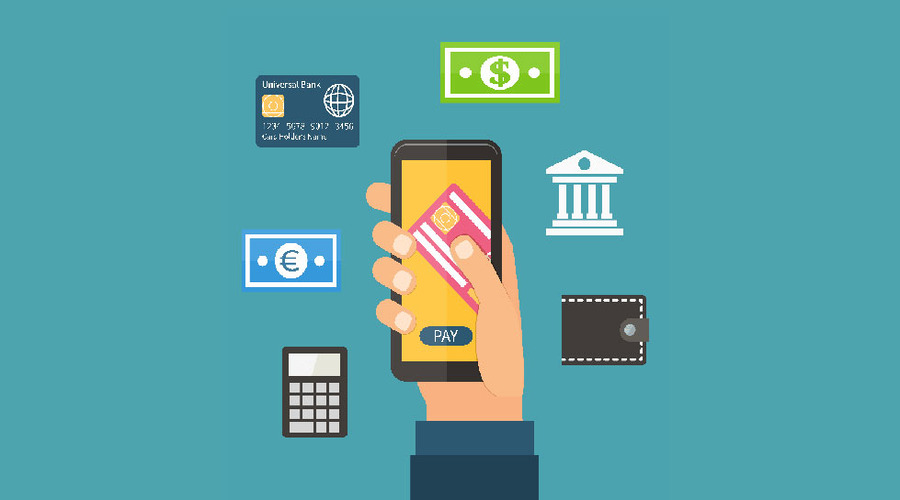In today’s digital age, mobile wallets have become increasingly popular as a convenient and secure way to store and manage our financial transactions. However, as with any digital asset, it is crucial to prioritize the security of our mobile wallets. One effective method to enhance the security of mobile wallets is by utilizing cold storage techniques. In this article, we will delve into the concept of cold storage for mobile wallets, discuss its importance, and provide you with best practices and recommendations to safeguard your digital wealth.
What is Cold Storage?
Cold storage refers to a method of storing private keys and other sensitive information offline, disconnected from the internet, thereby reducing the risk of unauthorized access and potential cyberattacks. In the context of mobile wallets, cold storage involves keeping the private keys of the wallet in an offline environment, minimizing the exposure to potential security vulnerabilities.
Cold storage refers to a method of securely storing sensitive information, such as private keys, offline and disconnected from the internet. In the context of digital assets, including cryptocurrencies and mobile wallets, cold storage ensures that the private keys required to access and manage these assets are kept in a secure and offline environment. By storing private keys offline, cold storage significantly reduces the risk of unauthorized access, hacking, and theft.
Cold storage methods include using offline hardware wallets, paper wallets, or hardware security modules (HSMs). Offline hardware wallets are physical devices that store private keys and provide an added layer of security. Paper wallets involve printing the private keys on paper and storing them in a physically protected location. Hardware security modules are specialized devices designed to securely manage cryptographic keys.
Implementing cold storage for mobile wallets is crucial to protect against potential cyber threats and ensure the safety of digital assets.
The Importance of Cold Storage for Mobile Wallets
Mobile wallets are susceptible to various security risks, such as malware attacks, phishing attempts, and unauthorized access. By implementing cold storage for your mobile wallet, you significantly enhance its security, making it more resilient to these threats. Cold storage ensures that even if your mobile device is compromised, the private keys required to access your funds remain safely offline, protected from potential digital threats.
The importance of cold storage for mobile wallets cannot be overstated. Implementing cold storage techniques offers numerous benefits and ensures the security of your digital assets. Here are the key reasons why cold storage is crucial for mobile wallets:
- Enhanced Security: Cold storage keeps your private keys offline, away from potential online threats such as hackers, malware, and phishing attempts. It significantly reduces the risk of unauthorized access and protects your funds.
- Protection against Malware: Mobile devices are susceptible to malware attacks that can compromise the security of your wallet. Cold storage eliminates the risk of malware stealing your private keys since they are stored offline and inaccessible to malicious software.
- Mitigation of Online Vulnerabilities: By disconnecting your private keys from the internet, you minimize the exposure to potential vulnerabilities in the online environment. This includes network attacks, server breaches, and software vulnerabilities.
- Prevention of Unauthorized Transactions: Cold storage ensures that even if your mobile device is compromised, attackers cannot initiate unauthorized transactions since the private keys required for transaction authorization are offline and inaccessible.
- Long-Term Asset Protection: Cold storage is particularly beneficial for long-term asset storage. By keeping your private keys offline, you safeguard your funds from potential future threats and technological advancements that could render current security measures obsolete.
- Peace of Mind: Knowing that your mobile wallet funds are stored in a secure offline environment provides peace of mind. Cold storage offers an extra layer of protection, reducing the worry and anxiety associated with online security risks.
In summary, cold storage is essential for mobile wallets as it enhances security, protects against malware and unauthorized transactions, mitigates online vulnerabilities, ensures long-term asset protection, and provides peace of mind for wallet owners.

Best Practices for Implementing Cold Storage
Understanding the Private Key
Before delving into cold storage methods, it is essential to understand the concept of a private key. A private key is a unique cryptographic code that grants access to your digital assets. It is crucial to keep the private key secure and prevent unauthorized access.
Offline Hardware Wallets
One of the most popular and secure methods of cold storage is by using offline hardware wallets. These physical devices, similar to USB drives, store your private keys offline. Hardware wallets provide an added layer of security by isolating the keys from potential online threats.
Paper Wallets
A paper wallet involves printing the private key and wallet address on a physical piece of paper. This method ensures that the keys are stored offline, away from potential online threats. However, it is crucial to keep the paper wallet in a secure and physically protected location.
Multi-Signature Wallets
Multi-signature wallets require multiple private keys to authorize transactions. By distributing the keys across different devices or individuals, you enhance the security of your mobile wallet. Even if one key is compromised, unauthorized access and fraudulent transactions can be prevented.
Hardware Security Modules (HSMs)
Hardware Security Modules are specialized devices designed to protect and manage cryptographic keys securely. These devices offer robust security features and are commonly used by businesses and enterprises to secure their digital assets. Integrating HSMs into your mobile wallet storage infrastructure can significantly enhance security.
Recommendations for Cold Storage
Regularly Update Wallet Software
To ensure the highest level of security, it is essential to keep your mobile wallet software up to date. Wallet providers frequently release updates that address potential vulnerabilities and security issues. By staying updated, you benefit from the latest security patches and enhancements.
Keep Backups in Secure Locations
Always maintain backups of your mobile wallet, especially when using cold storage methods. Store these backups in secure locations, such as encrypted external hard drives or offline storage mediums. Regularly test the restoration process to ensure the backups are functioning correctly.
Implement Strong Passwords and Two-Factor Authentication (2FA)
When setting up your mobile wallet, utilize strong and unique passwords. Additionally, enable two-factor authentication (2FA) for an extra layer of security. 2FA typically involves a combination of something you know (password) and something you have (a physical device or authentication app), making it significantly harder for unauthorized individuals to gain access.
Beware of Phishing Attempts and Malicious Software
Be cautious of phishing attempts and malicious software designed to trick you into revealing your private keys or sensitive information. Verify the authenticity of the websites you visit, avoid clicking on suspicious links or downloading files from untrusted sources. Install reputable antivirus software to protect your device from malware and regularly scan for potential threats.
Keep Your Operating System and Antivirus Software Updated
To maintain a secure environment for your mobile wallet, ensure that your operating system and antivirus software are regularly updated. Software updates often include security patches that address known vulnerabilities and protect your device from potential threats.
Be Mindful of Public Wi-Fi Networks
When accessing your mobile wallet, avoid connecting to public Wi-Fi networks, as they are often unsecured and susceptible to eavesdropping and malicious activities. If necessary, use a trusted virtual private network (VPN) to encrypt your internet connection and protect your data. When using your mobile wallet, be cautious of public Wi-Fi networks. Public Wi-Fi networks are often unsecured and can expose your sensitive information to potential eavesdropping and hacking attempts. To ensure the security of your transactions, avoid using public Wi-Fi or use a trusted virtual private network (VPN) for encryption.
Conclusion
Securing your mobile wallet through cold storage is essential in safeguarding your digital assets. By implementing best practices such as offline hardware wallets, paper wallets, multi-signature wallets, and HSMs, you significantly reduce the risk of unauthorized access and potential theft. Additionally, following the recommendations outlined in this article, such as regular software updates, strong passwords, and staying vigilant against phishing attempts, further enhances the security of your mobile wallet.
FAQs (Frequently Asked Questions)
1. What is the difference between hot storage and cold storage?
Hot storage refers to keeping your private keys connected to the internet, making them easily accessible for transactions. Cold storage, on the other hand, involves storing the private keys offline, disconnected from the internet, for enhanced security.
2. Can I use cold storage for all types of mobile wallets?
Yes, cold storage can be implemented for various types of mobile wallets, regardless of the cryptocurrency or digital asset they hold.
3. Are hardware wallets the most secure option for cold storage?
Hardware wallets are considered one of the most secure options for cold storage. They provide physical isolation of private keys and offer additional security features to protect against potential threats.
4. How often should I update my wallet software?
It is recommended to update your wallet software whenever new updates or security patches are released. Regularly checking for updates and installing them promptly ensures that your wallet remains secure.
5. Is it necessary to have multiple backups of my cold storage wallet?
Having multiple backups of your cold storage wallet is highly recommended. This ensures redundancy and protects against loss or damage of the primary backup. Store the backups in separate secure locations to minimize the risk of losing access to your funds.






